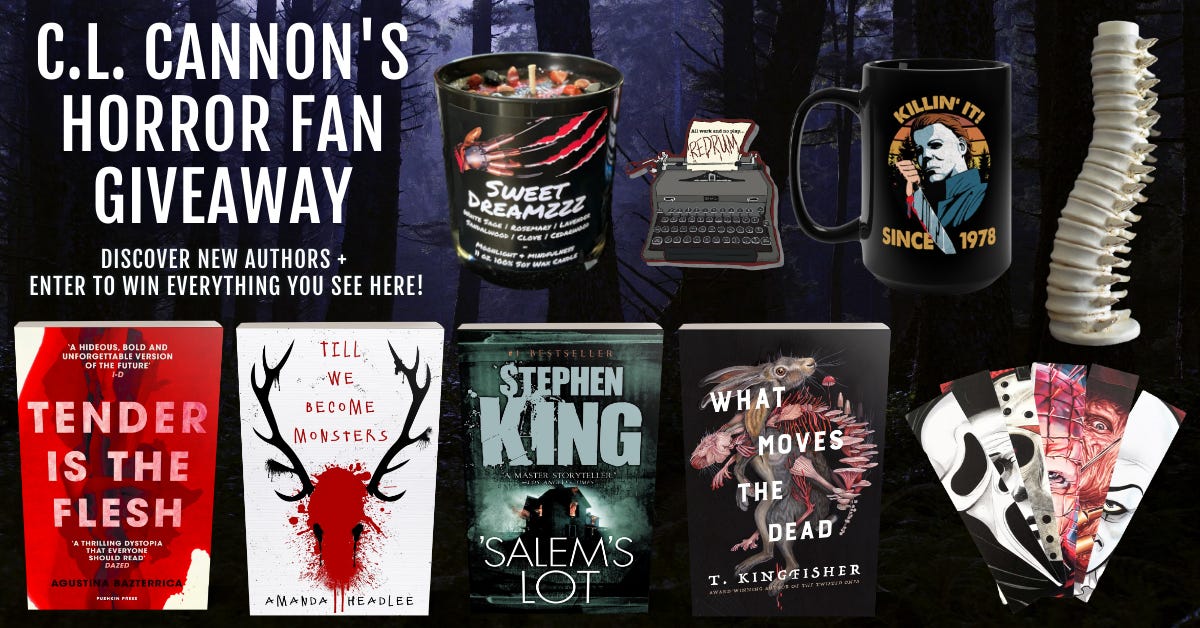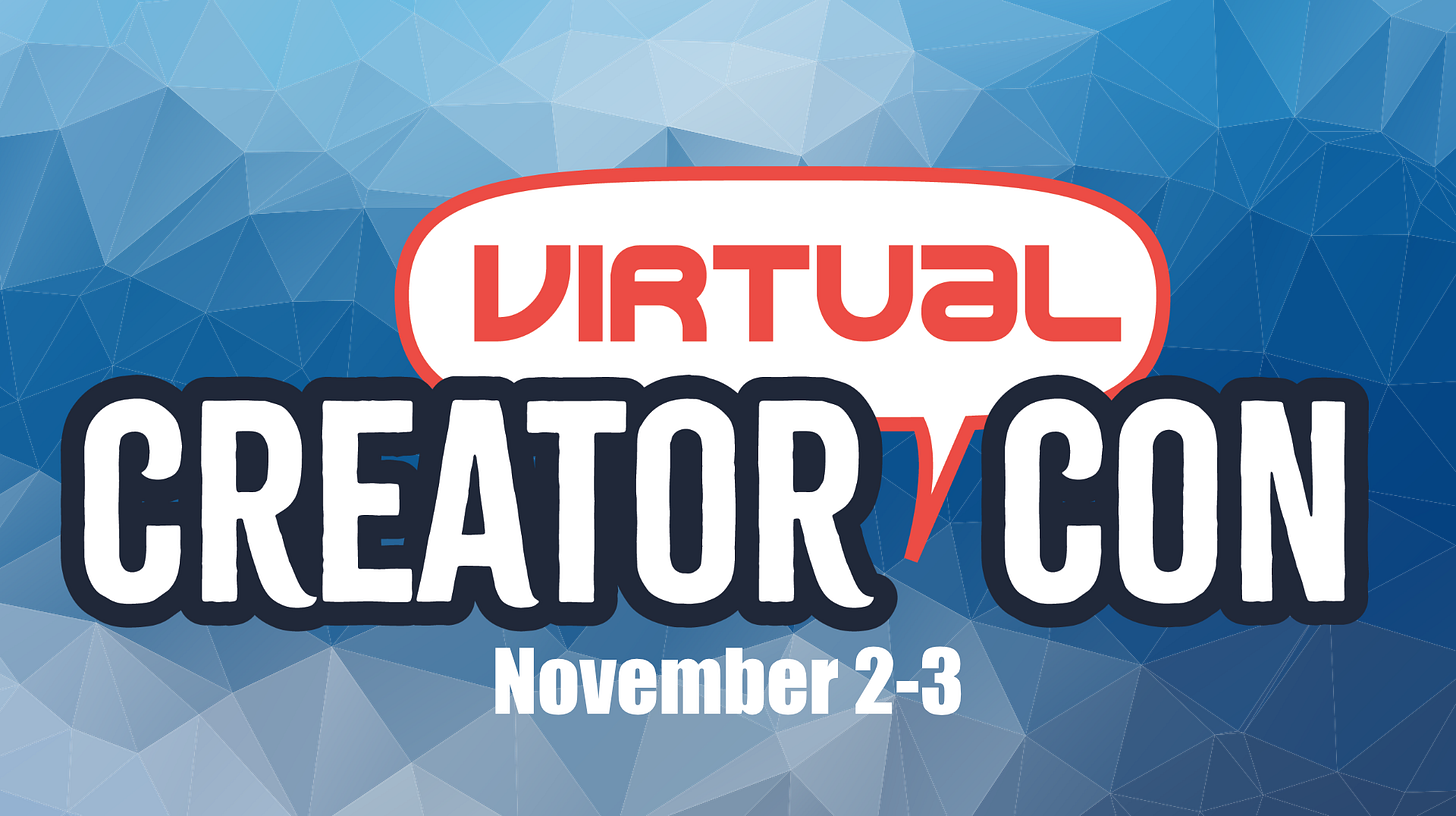Are horror fans more empathetic than we think?
Many people still believe horror fans are lacking in compassion and empathy, but is that actually the case?
Halloween is almost here! The smell of candy and excitement in the air, although you might not be able to detect its saccharine scent under the rotting stench of late-stage capitalism.

Halloween is mainstream. I don’t know exactly when it happened, but it seems like society is all in when it comes to spooky season fervour.
And I’m down with that.
As a horror fan and creator, this is my favourite time of year, when the dark and macabre is celebrated, not redacted or hidden under the rug. Despite this, there are still some people out there who get very upset when it comes to horror movies.
When I was younger, I remember adults warning me that my obsession with horror would lead me to having an immoral disposition, if not worse. They suggested horror fans were illiterate, lacking in empathy and compassion, and were basically sick sociopaths.
Growing up in the UK meant living in the shadows of the “Video Nasty” era, where the distribution of unclassified films was essentially criminalized, thanks to the several holier-than-thou “concerned citizens” (sound familiar?) who demanded government action, evoking the need to “protect the children.”
Does all that still bug me? It sure does.
But what I want to focus on today isn’t the policy failure of governments, or the self-nominated arbiters of culture who initiated said policy.
I want to talk today about their fears, not that kids would watch Straw Dogs - but the prejudicial fear that horror films create delinquents.
Obviously, I don’t think this isn’t true.
Horror fans are some of the most welcoming and compassionate folks I have met, but the prejudice hasn’t gone away. Sure, it’s okay to dress up for Halloween, but only if you’re a sexy donut and not Art the clown.
Even though horror rides high at the box office, and on television, and on our bookshelves, there are still people out there spreading the same warnings about horror stories and horror fandom.
Am I over-reacting? Haven’t we moved beyond such prejudicial thinking about horror fans? Let’s see what the literature has to say.
The prejudicial issue was front and centre in a recent study of 201 people living in the US (50% female, mean age of 34). Participants in the study were asked to review four randomly generated profiles of imaginary people. The profiles were randomly assigned, and included randomized information about what which genre of movie they enjoyed: action, horror, comedy, or drama.
Participants were then asked to predict seven personality traits associated with each profile, and finally, participants were asked questions about their own movie-going preferences.
The results? Horror fans were rated highly for openness, and anxiety, but low for conscientiousness, extraversion, kindness, empathy and compassion.
Horror fans were rated lowest for kindness, however there was some variation in the data due to the favourite genre of the participant, as those who indicated they were also horror fans rated horror fans as significantly (p<.01) kinder than other participants!
A similar finding occurred with compassion, although the relationship between participant genre and profile genre was not statistically significant (p>.05). For empathy, horror fans were again rated lowest, but there was no association with participant and profile genre.
Overall, participants predicted horror fans to be less kind, less empathetic, and less compassionate than fans of other genres.
However, participants who were also horror fans didn’t share this sentiment.
This confirmed that many people do have prejudicial opinions against horror fans, but the study didn’t stop there. It asked a follow-up question. While people generally believe horror fans are lacking in kindness, compassion, and empathy, is this actually true?

A second study comprised 244 US individuals who were horror fans, who completed two validated instruments, one to measure cognitive and affective empathy (QCAE) and the other to measure coldheartedness.
Cognitive empathy is composed of the perspective taking and online simulation factors.
Affective empathy is composed of the emotion contagion, peripheral responsivity, and proximal responsivity factors.
Coldheartedness refers to a general disregard for other people’s well-being, and can be understood as the opposite of compassion.
Participants were then introduced to five horror subgenres: gore/splatter, monster, paranormal, psychological, and slasher, and asked to rate them on a Likert scale in terms of enjoyment level.
Descriptive statistics showed that participants favoured psychological horror, followed by paranormal, monster, slasher, and gore (the least favourite). However, one-way ANOVA showed gore/splatter was enjoyed far less than slasher (p<.05), and paranormal, psychological, and monster (p<.01).
An interesting finding was that correlations between all different sub-genres were moderately positive, suggesting some level of commonality between them. For the instrumental data, cognitive and affective empathy were positively correlated (r=.57), but both were negatively correlated with coldheartedness (r=-.51 and r=-.69 respectively).
There was no indication that horror enjoyment was related to lower levels of compassion or empathy, while enjoyment of paranormal horror showed the strongest association with both (and the lowest association with coldheartedness).

But even that wasn’t enough. The experimenters ran a follow-up study on this cohort between 7-14 days later, with 88% of participants opting to continue. The aim of this final study was to ascertain whether enjoyment of horror was related to acts of compassion.
Participants were given a bonus equal to 50% of their initial compensation and told they could donate any portion of it to another participant who did not receive a bonus. Participants’ donations were anonymous, and they had no expectation of reciprocity.
Donations ranged from 0-100% with a mean of 21% and median of 2%, with approximately half of participants (51%) choosing to donate some portion of their bonus to another participant.
Greater enjoyment of any horror subgenre and enjoyment of horror overall was unrelated to how much a participant donated, as were age and sex. Donation amount was negatively correlated with coldheartedness (r = -.21, p<.01), but was unrelated to cognitive (r = .02, p>.05) and affective empathy (r = .10, p>.05). This suggests those who were lower in coldheartedness donated more of their bonus.
This study contradicts those who are concerned that horror fans are lacking in empathy and compassion. Participants who enjoyed paranormal horror more had significantly greater cognitive and affective empathy, as well as significantly lower coldheartedness. Enjoyment of even the most violent subgenres, such as gore/splatter and slashers, correlated positively with some aspects of cognitive empathy and were unrelated to affective empathy and coldheartedness.
Horror contest reminder
The contest ends on November 30, but you shouldn’t leave everything until the last minute!
Prizes include print copies of Tender is the Flesh by Agustine Bazterrica, Till We Become Monsters by Amanda Headlee, Salem’s Lot by Stephen King, and What Moves The Dead by T. Kingfisher, plus a Freddy Kruger candle, Micheal Meyers coffee mug, spine candlestick, horror baddies bookmark collection, and a Redrum typewriter sticker!
That’s it for this week. Are horror fans just a bunch of sickos? Are horror fans the best? Let me know what you think, and also - for fun - let me know how you would have responded to the second part of study two (above).
A quick reminder for those of you who are also comic fans - the next Virtual Creator Con event is next week (November 2-3), featuring guest comic creators including Eric Grissom, Jason Copland, Adriean Koleric and more. It’s one of the few cons where you can attend in your pyjamas! I hope you’ll check it out.





This post just gave me so much cognitive dissonance because last week I took my daughter’s to one of those Spirit Halloween stores and while we were there, I took a picture wearing this exact mask to send to my wife. Stumbling across your post while I was scrolling had me questioning everything. ”I don’t remember uploading that picture to Substack.”